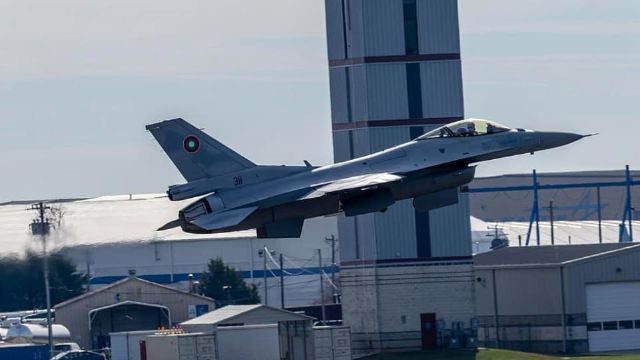
A new problem has emerged with Bulgaria’s recently acquired F-16 Block 70 fighter jets, this time involving a fuel leak from one of the aircraft’s internal tanks. The Defense Ministry confirmed the incident, sparking renewed debate over the readiness of the country’s high-profile military purchase.
Defense Minister Atanas Zapryanov revealed the malfunction in a written response to “Revival” MP Tsoncho Ganev. He confirmed that a Lockheed Martin representative is expected in Bulgaria by the end of September to carry out repairs.
U.S. Experts Called for Repairs
According to Zapryanov, engineers and technicians from the 3rd Fighter Air Base, along with American field representatives, had already conducted extensive diagnostics. Their report identified the probable cause of the leak, while additional spare parts and consumables have been requested from the U.S. side.
The Defense Ministry emphasized that regulatory procedures classify the defect as a technical malfunction requiring corrective measures before the jet can be returned to service.
Not the First Technical Challenge
This incident follows earlier issues when the first F-16 landed in Bulgaria in April. At the time, Air Force Commander Major General Nikolay Rusev reported irregularities in one of the jet’s systems. Although the aircraft was not deemed “broken,” it required further checks, which delayed its expected participation in the St. George’s Day parade.
After a circuit board was replaced, Zapryanov declared in June that the aircraft was fully operational. However, the latest malfunction has once again cast doubt on the reliability of Bulgaria’s modernized fleet.
Political Controversy
The problems have fueled political tensions. GERB leader Boyko Borissov accused the government of purchasing a “defective aircraft worth 100 million USD” and called for the dismissal of Air Force chief Rusev.
President Rumen Radev and Zapryanov defended the military leadership, stressing that the acceptance process was ongoing and that no shortcuts would be taken regarding safety.
EU Monitoring Developments
The issue has also drawn international attention. In April, the European Commission announced that it was closely monitoring Bulgaria’s F-16 program. Commission spokesman Thomas Renier urged that all allegations of sabotage or foreign interference be handled with seriousness but only on the basis of verified evidence.
Looking Ahead
So far, Bulgaria has received two aircraft under its 2019 contract, a single-seater and a two-seater, neither of which is being used for combat duty. The country expects eight jets in total by the end of 2025, with a second batch of eight scheduled for delivery by 2027.
For now, the Air Force insists the jets will remain in the testing phase until fully cleared for operational use, stressing that safety of pilots, crews, and equipment remains the top priority.
